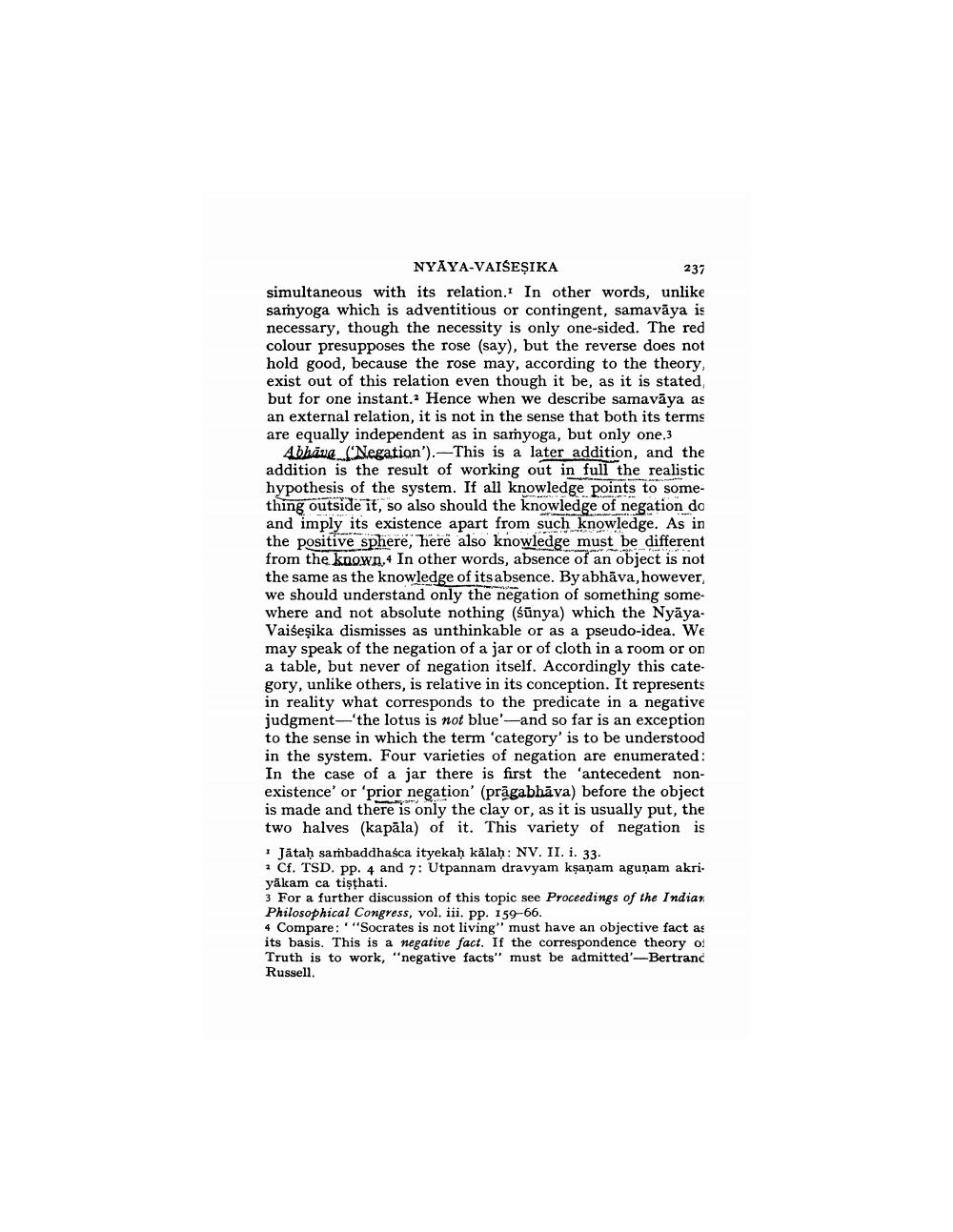________________
NYAYA-VAISESIKA
237 simultaneous with its relation. In other words, unlike samyoga which is adventitious or contingent, samavāya is necessary, though the necessity is only one-sided. The red colour presupposes the rose (say), but the reverse does not hold good, because the rose may, according to the theory, exist out of this relation even though it be, as it is stated, but for one instant. Hence when we describe samavāya as an external relation, it is not in the sense that both its terms are equally independent as in saryoga, but only one,3
4bhāvg (Negation'). - This is a later addition, and the addition is the result of working out in full the realistic hypothesis of the system. If all knowledge points to something outside it, so also should the knowledge of negation do and imply its existence apart from such knowledge. As in the positive sphere, here also knowledge must be different from the known. In other words, absence of an object is not the same as the knowledge of its absence. By abhāva, however, we should understand only the negation of something somewhere and not absolute nothing (sūnya) which the NyāyaVaiseşika dismisses as unthinkable or as a pseudo-idea. We may speak of the negation of a jar or of cloth in a room or on a table, but never of negation itself. Accordingly this category, unlike others, is relative in its conception. It represents in reality what corresponds to the predicate in a negative judgment-'the lotus is not blue' -and so far is an exception to the sense in which the term "category' is to be understood in the system. Four varieties of negation are enumerated : In the case of a jar there is first the 'antecedent nonexistence' or 'prior negation' (prāgabhāva) before the object is made and there is only the clay or, as it is usually put, the two halves (kapāla) of it. This variety of negation is Jätah sambaddhasca ityekah kalah: NV. II. i. 33.
Cf. TSD. Pp. 4 and 7: Utpannam dravyam kşaņam aguņam akri. yākam ca tişthati. 3 For a further discussion of this topic see Proceedings of the Indian Philosophical Congress, vol. iii. pp. 159-66. 4 Compare:""Socrates is not living" must have an objective fact as its basis. This is a negative fact. If the correspondence theory of Truth is to work, "negative facts" must be admitted'-Bertrand Russell.




